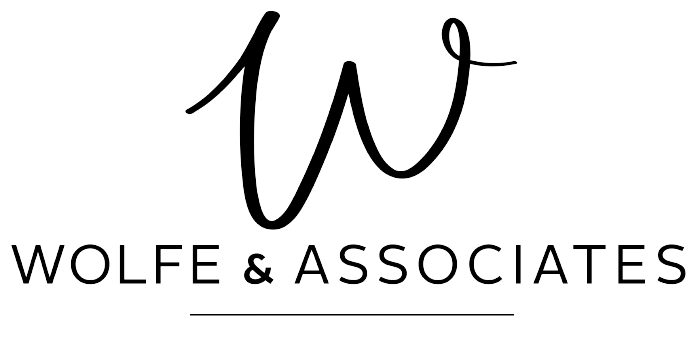Delaware Bankruptcy Lawyers
Chapter 7 Bankruptcy
Chapter 7 Bankruptcy In Delaware
Life has a way of unsettling the best laid plans. Sometimes, dealing with unforeseen circumstances becomes the norm rather than the exception. Even the most financially-responsible people among us can be overwhelmed by the costs arising from an accident, an illness, a loss of employment, a reduction of hours at work, a spike in interest rates, a loss of overtime wages, a bill for an unexpected repair job, or some other change in circumstances.
The results of spiraling debt can be devastating: depression, relationship trouble, anxiety and sleepless nights, can affect an otherwise perfectly grounded individual whose expenses have grown unmanageable. Therefore, it’s essential not only for your mental, but also your physical well-being that you act to reduce your debts as quickly and prudently as possible by hiring a Delaware Chapter 7 bankruptcy attorney. The longer one waits to take care of unpaid bills, the more a catastrophic outcome is likely to occur, such as the loss of a home, a car, or other cherished property. Not to mention the health risks posed from coping with long-term stress.
Understanding Chapter 7 Bankruptcy in Delaware
If you’re eager to restore a sense of balance to your life, then you may wish to acquire legal representation from a Delaware Chapter 7 bankruptcy lawyer. We, at Wolfe & Associates can help protect your property and obtain a new financial start. We invite you to contact our office by phone at (302) 644-1426 to arrange for a free, initial consultation with our chapter 7 bankruptcy lawyer. We have 4 convenient locations in Rehoboth Beach, Dover, Middletown and Wilmington.
What is Chapter 7 Bankruptcy?
Simply put: Chapter 7 of the United States Bankruptcy Code is a provision under Federal law designed to assist individuals and businesses who cannot repay their debts. When a person files a Chapter 7 bankruptcy in Delaware, he or she is taking the initiative to reestablish control over their financial situation. Put another way, a Chapter 7 bankruptcy can help people turn over a new page in their financial history. The Chapter 7 Delaware filing frees an individual from having to pay dischargeable debts. These include credit card balances, bank loans, personal loans, court judgments, and medical bills. Of note, there are certain non-dischargeable debts that typically must be paid. These generally include tax debts, student loans, government fines, court fines, as well as child and spousal support.
A person who files a successful claim under Chapter 7 bankruptcy is able to retain all property categorized as exempt. Commonly exempted property includes:
(1) a certain amount of equity in your home, (2) a certain amount of equity in a motor vehicle; (3) most household items and personal property such as clothing, a wedding ring, or the tools of your trade; (4) most public benefits such as social security, disability, veterans benefits, worker’s compensation, (5) alimony and/or child support; (6) qualifying retirement accounts, pensions, and life insurance; (6) a limited amount of cash. Additional information regarding property exemptions can be found in our Property Exemptions in Bankruptcy article.
Typically, a Delaware Chapter 7 bankruptcy results in the sale or liquidation of the debtor’s nonexempt possessions or assets. A person known as the bankruptcy trustee is authorized to evaluate and sell off the debtor’s nonexempt assets. The proceeds of this sale are used to pay off creditors.
Qualifying for Chapter 7 Bankruptcy in Delaware
Recent changes in the bankruptcy laws require people who earn above the average income in their geographical area go through a means test to see if they qualify for Chapter 7 bankruptcy in Delaware. A two-step income and expense analysis, the means test can be somewhat complicated for a person unfamiliar with its criteria to determine on his or her own. Not to worry. We can guide you through the means test and help you to determine if you are an eligible candidate for Chapter 7 bankruptcy. In the event you are not eligible, we can help you to explore other options such as Chapter 13 bankruptcy.
Once you hire us to represent you, we begin working on your case immediately. It’s our privilege and duty to represent you throughout the entire bankruptcy process, from beginning to end. Once you inform the collection agencies that you’re represented by an attorney, they are required by law to stop contacting you. In some instances, declaring bankruptcy can stop home foreclosure proceedings as well as deter the repossession of property.
Contact our office by phone at (302) 644-1426 to arrange for a free, initial consultation with a Delaware Chapter 7 bankruptcy attorney.
We have 4 convenient locations in Rehoboth Beach, Dover, Middletown and Wilmington.
Means Test For Bankruptcy In Delaware
In 2005, the United States made substantial changes to its bankruptcy laws. One of the major changes is known as the Means Test, which is an income and expense test under the bankruptcy code. What does that mean? Simply put, it means that if you want to file a Chapter 7 bankruptcy for consumer debts, you must meet certain requirements. The Means Test requires that your “current monthly income” be less than the median income in your state for your particular family size if you want to be able to file for bankruptcy under Chapter 7.
Means Test Requirements
The Means Test was designed to limit the use of Chapter 7 bankruptcy. It does this by deducting specific expenses from your “current monthly income” (your average income over the six calendar months before you file for bankruptcy) to arrive at your monthly “disposable income.” The debtor’s “current monthly income” is reduced by a set of allowed deductions specified under the “collection standards of the Internal Revenue Service.” Because these deductions do not necessarily reflect all the actual expenses the debtor incurs on a monthly basis, there are other deductions that are taken into account in the calculation. They include:
actual expenses not provided by the Internal Revenue Standards including “reasonably necessary health insurance, disability insurance, and health savings account expenses,”
continued contributions to care of nondependent family members,
a limited amount of expenses for tuition and other miscellaneous costs associated with sending your children to grade and high school,
additional home energy costs in addition to those laid out in the IRS guidelines that are reasonable and necessary,
1/60th of all priority secured debt that will become due in the five years after the filing of the bankruptcy case,
expenses for protection from family violence,
continued contributions to tax-exempt charities.
The higher your disposable income, the more likely you won’t be allowed to use Chapter 7 bankruptcy. If you do not pass the means test, it may be rebutted in the case of “special circumstances.” If you do not pass the Means Test, you are not necessarily out of options. You may still be eligible to file a Chapter 13 bankruptcy.
Wolfe & Associates understand the nuances of the Chapter 7 bankruptcy Means Test and are dedicated to crafting legal strategies that are best suited to each client’s unique, financial situation.
For more information on how the firm can help you to control of your financial life, please contact our office by phone at (302) 644-1426 to arrange for a free, initial consultation regarding the Means Test and Chapter 7 bankruptcy.
We have 4 convenient locations in Rehoboth Beach, Dover, Middletown and Wilmington.

